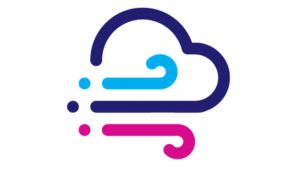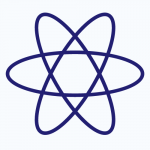High Performance Computing
Partnering with scientists to accelerate scientific discovery
The Minerva supercomputer is maintained by High Performance Computing (HPC). Minerva was created in 2012 and has been upgraded several times (most recently in Nov. 2024) and has over 11 petaflops of computing power. It consists of 24,912 Intel Platinum processors in different generations including 2.3 GHz, 2.6 GHz, and 2.9 GHz computing cores (96 cores or 64 cores or 48 cores per node with two sockets in each node) with 1.5 terabytes (TB) of memory per node, 356 graphical processing units (GPUs), including 236 Nvidia H100s, 32 Nvidia L40S, 40 Nvidia A100s, 48 Nvidia V100s, 440 TB of total memory, and 32 petabytes of spinning storage accessed via IBM’s Spectrum Scale/General Parallel File System (GPFS). Minerva has contributed to over 1,900 peer-reviewed publications since 2012. More details here.

Announcements
-
We will be holding 5 training sessions this Spring, every Thursday starting February 12, 2026, and ending March 12, 2026.
-
All sessions will be offered in person (Icahn 14th Floor, Room 14-84).
-
Zoom links for virtual attendees to register for each session are provided below.
-
Upon registration, a zoom link will be sent for the specific training session.
-
Minerva resources
-
Account and logging in
-
User software environment
-
Preview of service on Minerva
-
Globus file transfers
-
Web server usage
-
TSM archive service
-
Posit Connect server
-
LSF introduction and basic/helpful LSF commands
-
Job submission and monitoring
-
Parallel jobs (parallel processing and GPUs)
-
Job Arrays and Self-scheduler
-
DOs and DON’Ts
-
What is a GPU
-
GPU resources on Minerva
-
User GPU/AI Software environment on Minerva
-
Running GPU/AI jobs in LSF
-
Introduction to Large Language Models (LLMs)
-
Transformer Architecture
-
Key LLM Models
-
Training and Fine-Tuning LLMs
-
Practical Implementation on GPUs
UPDATE! AIR•MS USER TICKETING SUPPORT SYSTEM!
Scientific Computing and Data
Windreich Department of Artificial Intelligence and Human Health
The Charles Bronfman Institute for Personalized Medicine
REMINDER: Minerva Data Backup Policy
-
We do not backup user files. Please archive/backup your important files by yourselves.
-
We have included this in the message of the day (MOTD) after you log into Minerva, User Responsibilities and Acceptable Usage Policy, and Annual HIPAA Policy
-
We will keep reminding you every quarter via email
-
Please archive/backup your files following the guide at https://labs.icahn.mssm.edu/minervalab/documentation/access-tsm-with-command-line/
-
-
Please don’t set the permission of your Minerva files as rwx (read, write and execute) for everyone/others.
-
This can result in file deletion by others. Please double check your file permission on Minerva especially for your project directory
-
RESEARCH ALERT!! New Guidance Document on Data Access and Sharing and NIST SP 800-171 Compliance
December 30th, 2025
At the December 2025 GCO Grants Forum, the Grants and Contracts Office (GCO) announced that a new guidance document would be issued to assist investigators with compliance related to genomic data access and sharing. This guidance aligns with NIH Notice NOT-OD-24-157, which mandates that all data accessed from NIH-controlled repositories, including dbGaP, must be supported within a NIST SP 800-171 compliant environment. The designated ISMMS NIST SP 800-171 environment is Minerva.
This guidance document entitled, “GCO Requirements for Restricted Access to Incoming Data from a Federal Genomic Data Repository or a…” is NOW AVAILABLE!! This document outlines the steps needed for institutional approval of the agreements, namely Data Use Certifications, Data Use Agreements, Data Transfer Use Agreements (DTUAs), and/or Data Provision Agreements (DPAs). The document is organized in the following sections:
- REDCap attestation form instructions confirming data storage in Minerva.
- Updating the eDMS Conflict of Interest (COI) Triggering Event (TE) for New Individuals Meeting the COI Regulatory Definition of Investigator.
- InfoEd Submission if the Data Sharing Is Not in Support of An Already Existing Project Submitted to the GCO.
- Information Required by Your Authorized Organization Representative (AOR) Prior to Signing/Certifying the Agreement.
- Unauthorized Sharing of and Access to Data.
- Adding Individuals to an Agreement.
- External Collaborators and Investigators with Multiple Research Appointments.
- Storage and End of Usage Data Destruction or Return Terms.
- Procedure to Access Genomic Data from Federal Data Repositories.
- Resources.
Please review this document carefully and incorporate its requirements into your research practices.
Please contact your designated GCO Contracts Specialist or AOR with any questions and for further guidance.
NOVEMBER 2025 RESEARCH ALERT
Please Note the Following from the Grants and Contracts Office (GCO) Concerning Unauthorized Sharing and Access of Incoming Data with Others and Additional Compliance with Your Agreement for Data Access:
- The following applies to Principal Investigators (PIs) whose research involves accessing data from an external entity.
- Unless explicitly stated otherwise, data providers and repositories restrict data access to the individuals listed in the agreement for data access (Agreement). Your access to data does not automatically grant permission to share it with others in your lab.
- Any individual who needs access must be explicitly listed as a recipient in the agreement either by name or by inclusion in an authorized personnel category (e.g., recipient’s faculty, employees, fellows, students, and agents (“Recipient Personnel”)). It is a serious violation with potential financial and legal consequences if you share data with individuals who are not authorized. To add ISMMS individuals, follow the steps in accordance with the requirements of the data repository and the terms of your Agreement.
- The PI is responsible for ensuring that all individuals with access to the data are aware of the Agreement terms, especially any restrictions on further data access and sharing.
- External collaborators need to request access to the data repository through their own institution. The external collaborator within their institution needs to establish the Agreement.
- If you have a multiple research appointment, the data access is for you at ISMMS only. Do not send the data to your other institution or store it on their servers.
- Likewise, do not send data to a personal email account or device.
- In addition to restrictions on data sharing and access, you must ensure compliance with all other terms of the Agreement, especially those related to end of usage data destruction or return. Failure to comply may constitute a serious violation.
NEW: AIR·MS Fall Training – Recordings and slides now available!
 Three new AIR·MS training sessions took place this Fall aimed at introducing users to the AIR·MS environment and AI-related tools through live demonstrations.
Three new AIR·MS training sessions took place this Fall aimed at introducing users to the AIR·MS environment and AI-related tools through live demonstrations.
Further training sessions will commence in Spring 2026. Please be sure to check back here for details when they are announced.
Recordings and slides from the Fall sessions are now available for viewing here.
Minerva High Performance Computing 2025 Charge Rate
The 2025 charge rate for the Minerva High Performance Computing (HPC) service is now $155/TiB/year, effective on September 1, 2025. The new rate will be reflected in the December quarterly charges. For questions, please reach out to ranjini.kottaiyan@mssm.edu.
July 2025 – National Institutes of Health (NIH) S10 Instrumentation Grant Award
Dean Patricia Kovatch, head of Scientific Computing and Data at the Icahn School of Medicine at Mount Sinai, was awarded $2M from the National Institutes of Health (NIH) as part of an S10 Instrumentation Grant (for advanced instrumentation) to provide state-of-the-art GPU capability and capacity.
These funds will support the creation of 48 NVIDIA B200 GPUs in 6 x DGX compute nodes, with the following specifications:
- 8x NVLinked B200 GPUs per node, 192 GB of memory per GPU, for a total of 48 xB200 GPUs and 9 TB of memory available on B200.
- 112 Intel Xeon Platinum 8570 2.1GHz cores, 2 TB memory, 25 TB high-speed NVME local storage per node for a total of 672 cores and 12 terabytes of memory on servers.
- B200 introduced new format FP4 (floating point 4-bit) capability, enabling the Minerva computing infrastructure to provide nearly an exaflop with FP4 for AI inference as shown in the NVIDIA B200 DGX datasheet.
This award was only possible with the support of the many researchers at Mount Sinai, and Icahn School of Medicine leadership.
Top 10 Users
01 December 2025 through 31 December 2025
| PI | Department | Total Hours |
| Goate, Alison | Genetics and Genomic Sciences | 1,635,347 |
| Raj, Towfique | Neuroscience | 1,593,893 |
| Gu, Xiaosi | Psychiatry | 1,473,378 |
| Roussos, Panagiotis | Psychiatry | 1,393,249 |
| Charney, Alexander | Genetics and Genomic Sciences | 776,787 |
| Filizola, Marta | Structural and Chemical Biology | 643,213 |
| Campanella, Gabriele | AI and Human Health | 522,116 |
| Nadkarni, Girish | Medicine | 418,099 |
| Shi, Yi | Pharmacological Sciences | 407,289 |
| Tsankov, Alexander | Genetics and Genomic Sciences | 314,848 |
Minerva High Performance Computer
Leverage the compute power of Minerva to advance your science
Technical Specifications
Over 11 petaflops of compute power, 440 TB of random access memory (RAM), 32 petabytes of spinning storage, and over 24,000 cores. See more.
Chimera Partition
Chimera Partition
- 4 login nodes – Intel Xeon(R) Platinum 8168 24C, 2.7GHz – 384 GB memory
- 275 compute nodes* – Intel 8168 24C, 2.7GHz – 192 GB memory
- 13,152 cores (48 per node (2 sockets/node))
- 37 high memory nodes – Intel 8168/8268 24C, 2.7GHz/2.9GHZ – 1.5 TB memory
- 48 V100 GPUs in 12 nodes – Intel 6142 16C, 2.6GHz – 384 GB memory – 4x V100-16 GB GPU
- 32 A100 GPUs in 8 nodes – Intel 8268 24C, 2.9GHz – 384 GB memory – 4x A100-40 GB GPU
- 1.92TB SSD (1.8 TB usable) per node
- 10 gateway nodes
- New NFS storage (for users home directories) – 192 TB raw / 160 TB usable RAID6
- Mellanox EDR InfiniBand fat tree fabric (100Gb/s)
BODE2 Partition (Decommissioned)
BODE2 Partition
(Note: this partition was recently decommissioned in 2024.)
$2M S10 BODE2 awarded by NIH (Grant PI: Patricia Kovatch)
- 3,744 48-core 2.9 GHz Intel Cascade Lake 8268 processors in 78 nodes
- 192 GB of memory per node
- 240 GB of SSDs per node
- 15 TB total memory
- Before decommissioning, this partition is open to all NIH funded projects
CATS Partition
CATS Partition
$2M CATS awarded by NIH (Grant PI: Patricia Kovatch)
- 3,520 64-core 2.6 GHz Intel IceLake processors in 55 nodes
- 1.5 TB of memory per node
- 82.5 TB memory (collectively)
- This partition is open to eligible NIH funded projects

Account Request
All Minerva users, including external collaborators, must have an account to access. See more.
Mount Sinai User
Request a Minerva User Account. You’ll need your Sinai Username, PI name, and Department.
External Collaborators
Request an External Collaborator User Account. PI’s can request an account for non-Mount Sinai Users.
Group Collaborator
Request a Group Collaboration. Collaboration accounts for group-related activities require PI approval.
Project Allocation
Request for Project Allocation. Request allocation on Minerva for a new or existing project.

Connect to Minerva
Minerva uses the Secure Shell (SSH) protocol and two factor authentication. Minerva is HIPAA compliant. See more.
Quick Start Guide
Connect to Minerva from on-site or off-site, utilizing Unix or Windows. See more by clicking here.
Acceptable Use Policy
When using resources at Icahn School of Medicine at Mount Sinai, all users agree to abide by specified user responsibilities. Click here to see more.
Usage Fee Policy
Please refer to our comprehensive fee schedule based on the resources used. See more.
- The 2024 charging rate is now $119/terabyte/yr calculated monthly at a rate of $9.92/terabyte/mo
- Charges are determined yearly by the Mount Sinai Compliance and Finance Departments and include all Minerva services, i.e., cpu and gpu utilization; the storage, itself; archive storage; etc.
We are HIPAA Compliant
All users are required to read the HIPAA policy and complete the Minerva HIPAA compliance form on an annual basis. Click here to read more about HIPAA compliance.
Research Data
Utilize existing data, or supplement your research with additional data from the Mount Sinai Health System.

Mount Sinai Data Warehouse
The Mount Sinai Data Warehouse (MSDW) collects clinical and operational data for use in clinical and translational research, as well as quality and improvement initiatives. MSDW provides researchers access to data on patients in the Mount Sinai Health System, drawing from over 11 million patients with an encounter in Epic EHR.

Data Ark: Data Commons
The Data Ark: Mount Sinai Data Commons is located on Minerva. The number, type, and diversity of restricted and unrestricted data sets on the Data Ark are increasing on an ongoing basis. Rapidly access high-quality data to increase your sample size; our diverse patient population is ideal for testing the generalizability of your results.
Acknowledge Mount Sinai in Your Work
Utilizing S10 BODE and CATS partitions requires acknowledgements of support by NIH in your publications. To assist, we have provided exact wording of acknowledgements required by NIH for your use.
Supported by grant UL1TR004419 from the National Center for Advancing Translational Sciences, National Institutes of Health.

